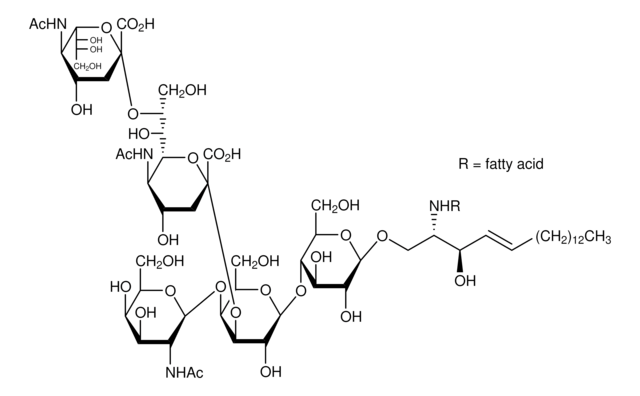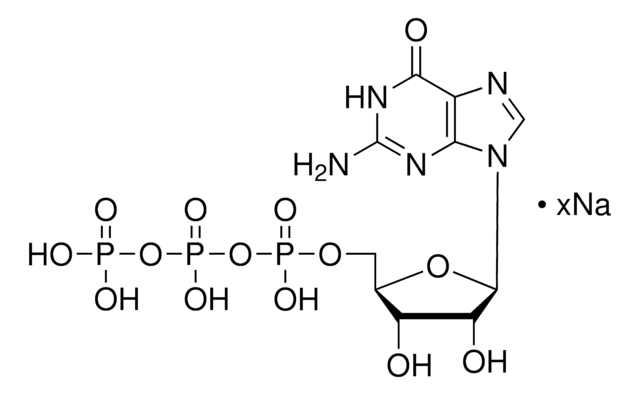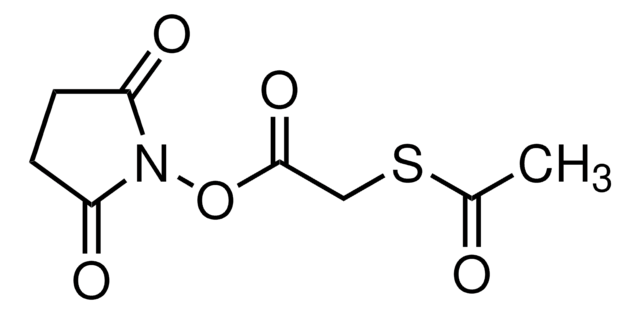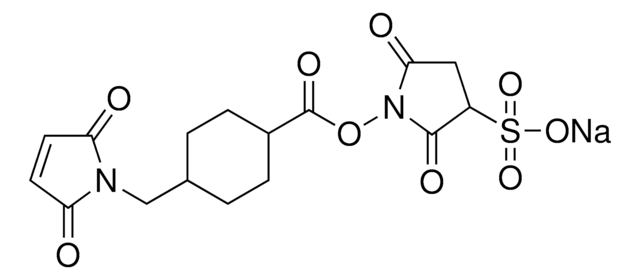P3415
3-(2-Pyridyldithio)propionic acid N-hydroxysuccinimide ester
≥95%, powder
Synonym(s):
N-Succinimidyl 3-(2-pyridyldithio)propionate, SPDP
About This Item
Recommended Products
Quality Level
Assay
≥95%
form
powder
reaction suitability
reagent type: cross-linking reagent
mp
84-86 °C (lit.)
solubility
acetone: 50 mg/mL
DMF: soluble
functional group
NHS ester
storage temp.
−20°C
SMILES string
O=C(CCSSC1=NC=CC=C1)ON2C(CCC2=O)=O
InChI
1S/C12H12N2O4S2/c15-10-4-5-11(16)14(10)18-12(17)6-8-19-20-9-3-1-2-7-13-9/h1-3,7H,4-6,8H2
InChI key
JWDFQMWEFLOOED-UHFFFAOYSA-N
Looking for similar products? Visit Product Comparison Guide
General description
Application
It has been used for antibody conjugation and as a protein cross-linker.
Storage Class Code
11 - Combustible Solids
WGK
WGK 3
Flash Point(F)
Not applicable
Flash Point(C)
Not applicable
Personal Protective Equipment
Choose from one of the most recent versions:
Certificates of Analysis (COA)
Don't see the Right Version?
If you require a particular version, you can look up a specific certificate by the Lot or Batch number.
Already Own This Product?
Find documentation for the products that you have recently purchased in the Document Library.
Customers Also Viewed
Articles
Kanjiro Miyata (The University of Tokyo, Japan) provides insights on the rational design of polymeric materials for “smart” oligonucleotide delivery.
Our team of scientists has experience in all areas of research including Life Science, Material Science, Chemical Synthesis, Chromatography, Analytical and many others.
Contact Technical Service
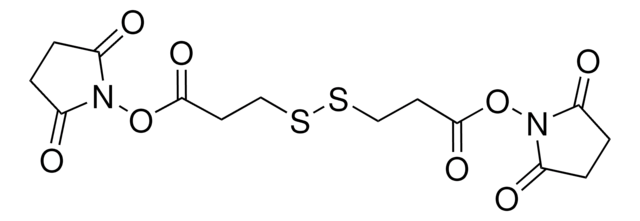
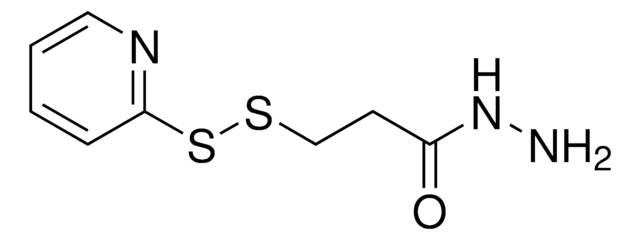
![LC-SPDP (succinimidyl 6-[3(2-pyridyldithio)propionamido]hexanoate)](/deepweb/assets/sigmaaldrich/product/structures/300/586/d95fd80c-e201-4b0b-8aee-31e109c2ff41/640/d95fd80c-e201-4b0b-8aee-31e109c2ff41.png)

